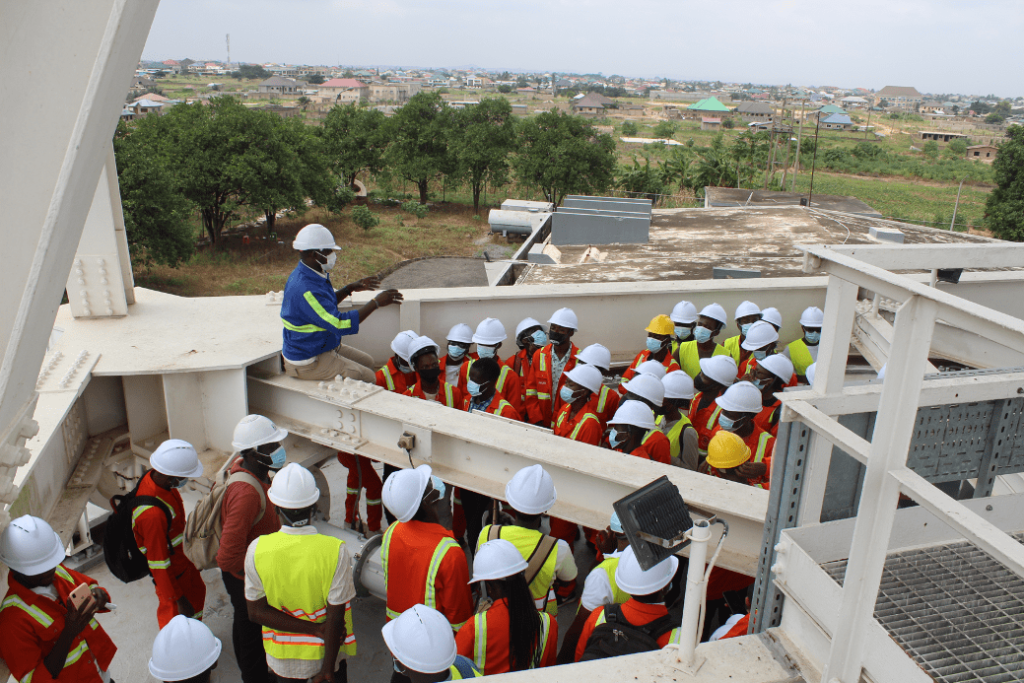The SKA project brings a wave of hope, enthusiasm and scholarship to Africa. With South Africa spearheading the development of astronomy in Africa with the AVN in eight partner countries (Ghana, Kenya, Namibia, Zambia, Botswana, Mozambique, Madagascar and Mauritius), the progress can best be described as worthwhile and successful.
Through South Africa and UK, a redundant 32- metre telecommunications dish has been converted to a functional radio telescope in Ghana, named the Ghana Radio Astronomy Observatory (GRAO). The radio telescope undertakes research in masers, pulsars, AGN sources among other research activities. Engineers from SARAO are working round the clock to complete the last upgrades to the telescope by the mid of 2022.
UK aid through the Royal Society and Newton fund’s Development of Africa through Radio Astronomy (DARA) programme has since 2015, educated many Africans in astronomy. The DARA project has spent about 4 million GBP to train the first generation of radio astronomers in the AVN countries. The project executed through a consortium of Universities and partners in the UK, EU, South Africa and other African countries.
The DARA project recruits about ten Bachelors students in Physics and relevant sciences from the AVN countries for training in astronomy over a period of a year them through a period of a year.
Astronomy development in Ghana is progressing steadily despite the covid-19 pandemic. GRAO has become a training centre for the DARA practical training. Prior to covid-19, Instructors around the globe come to deliver the practical session of the course at GRAO and Hartebeestheok, South Africa for the countries in the southern part of Africa.
In achieving one of the milestone of the DARA project, astronomers from Ghana has taken up the challenge to deliver the practical session with the help of the virtual tutors. Most of the content were developed by the virtual tutors while the local team who were beneficiaries of the DARA training deliver the course on-site. Students from six (6) African countries namely; Ghana, Kenya, Namibia, Zambia, Botswana and Mozambique participated in the DARA practical training took place at GRAO at Kutunse, Accra Ghana in 2021. While at GRAO, the students had hands-on-training in telescope observations, data reduction, radio frequency interference (rfi) measurements, receiver and sun temperature measurements. Table top radio telescope (ttrt) operation and optical telescope viewing were also part of the practical sessions.


GRAO also continue to host students and the general public for astronomy outreach and education.

Proven-Adzri Emmanuel
(Ghana Radio Astronomy Observatory, Ghana Space Science and Technology Institute)




